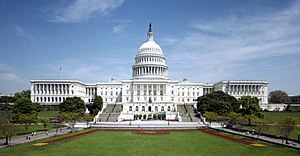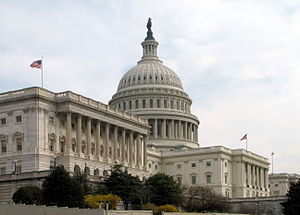 Image via Wikipedia
Image via WikipediaIn previous posts we have examined why Congress made changes to the Americans with Disabilities Act and §504. Now were ready to discuss some of the changes:
- The definition of major life activities has been expanded to include major bodily functions, sleeping, standing, lifting,bending, reading, concentrating, thinking and communicating.
- Impairments that are episodic or in remission is considered a disability if it would substantially limit a major life activity when active.
- The determination of whether an impairment substantially limits a major life activity must be made without regard to the ameliorative effects of mitigating measures such as medication, medical supplies, ...low vision devices (not including ordinary eyeglasses or contact lenses), prosthetics, hearing aids, cochlear implants, ...the use of assertive technology, ... learned behavioral or adaptive neurological modifications... 42 USC §12102(4)(E).
- a relaxed definition of substantial limitation.
These are the big changes. In the next post on this series, we will review how theses changes might affect the education of children with disabilities.
- The definition of major life activities has been expanded to include major bodily functions, sleeping, standing, lifting,bending, reading, concentrating, thinking and communicating.
- Impairments that are episodic or in remission is considered a disability if it would substantially limit a major life activity when active.
- The determination of whether an impairment substantially limits a major life activity must be made without regard to the ameliorative effects of mitigating measures such as medication, medical supplies, ...low vision devices (not including ordinary eyeglasses or contact lenses), prosthetics, hearing aids, cochlear implants, ...the use of assertive technology, ... learned behavioral or adaptive neurological modifications... 42 USC §12102(4)(E).
- a relaxed definition of substantial limitation.
These are the big changes. In the next post on this series, we will review how theses changes might affect the education of children with disabilities.











